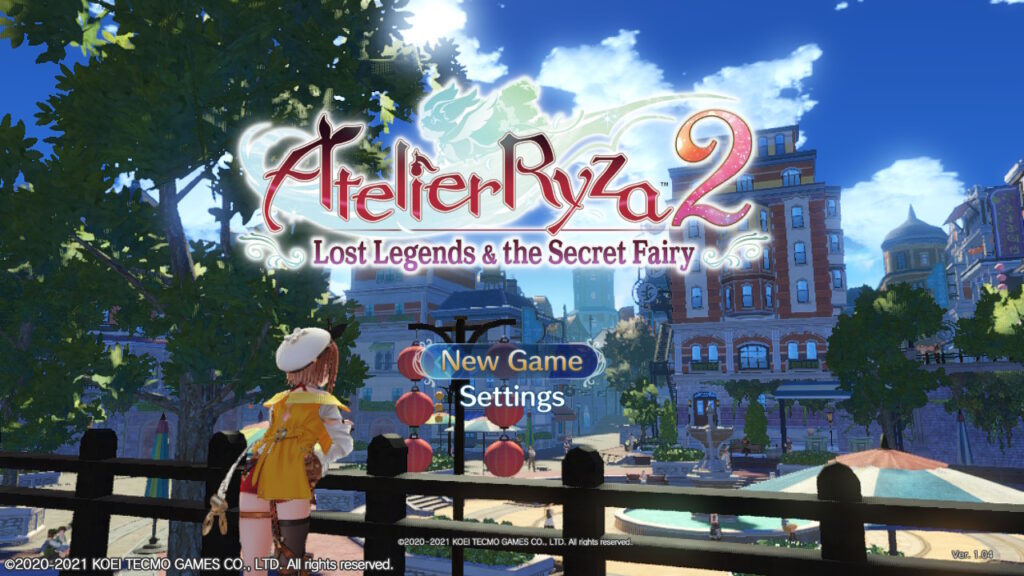
The Atelier series touched upon a winning formula; cute girls doing cute things, and a dash of crafting and RPG battles. Despite an aesthetic very popular among anime fans, the series relaxing and comfy aesthetic always seemed to give it niche appeal. Right up until Atelier Ryza: Ever Darkness & the Secret Hideout.
It quickly became the best selling Atelier game in the series, due in no small part to main character Reisalin “Ryza” Stout. Her thighs gave the series new legs, and her sequel was soon put into production.
Atelier Ryza 2: Lost Legends & the Secret Fairy
Developer: Gust
Publisher: Koei Tecmo Games
Platforms: Windows PC, Nintendo Switch (reviewed), PlayStation 4, PlayStation 5
Release Date: January 21st, 2021
Players: 1
Price: $59.99 USD
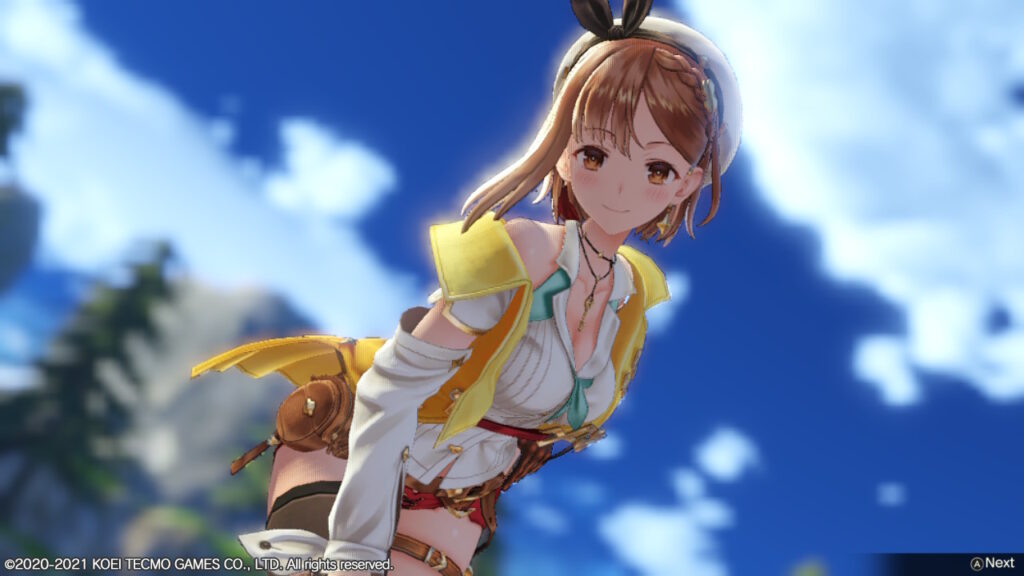
The game’s visuals caught my eye almost immediately. No it wasn’t Ryza’s voluptuous thighs in short shorts; but the scenery, character designs, vibrant colors, and inclement weather conditions complete with an in game day and night cycle.
The first game’s success was in part due to how adorable the MC is. If you like Ryza and her thighs in the first game, then prepare for lots more. No shortage of that at all. There is excellent attention to detail in various places one wouldn’t expect, like cobwebs and dust on old barrels, and moss growth on rocks by waterside paths.
The camera tends to get away from from you at times when exploring however. I was always chasing it down to re-center it. A word of warning, the X and Y axis are inverted by default.
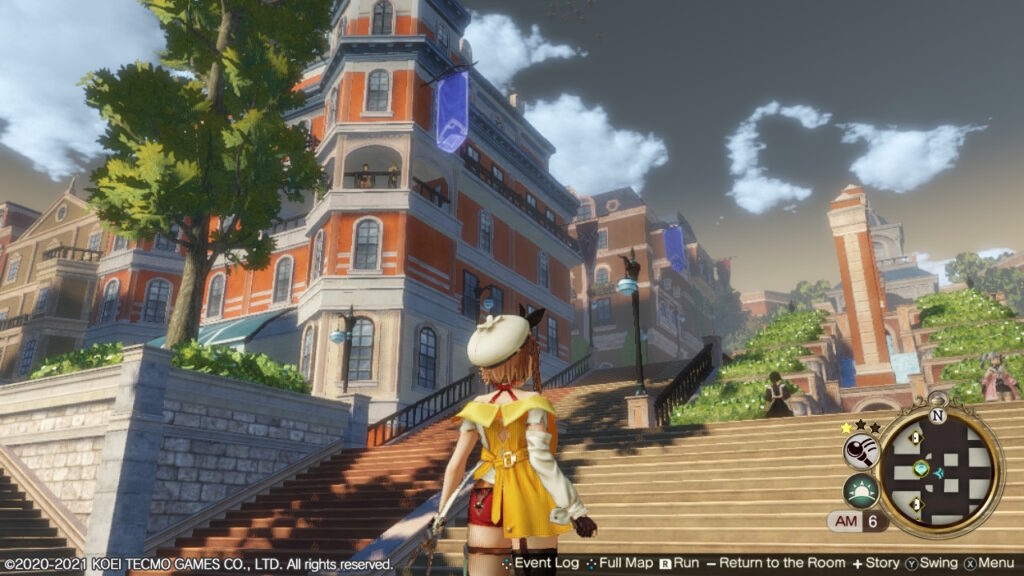
Any good RPG worth it’s salt needs to have a decent story. This one’s not a super serious “fight bad guy, save world, get paid and laid” type of tale. It’s more of a “I just wanna explore the world with my friends” kind of story.
It centers around Ryza, a layabout alchemist given a strange stone by her grandpa, along with a note telling her to go to the capital city promising all will become clear. She makes it there, and ends up reuniting almost immediately with old friends from the previous game (set three years prior to the current tale).
She ends up settling in, and finds herself in need of making money to pay rent for her alchemy shop. In true Atelier fashion, she starts helping the folks around town. Once you meet up with a certain friend, you’ll end up exploring a plethora of nearby ruins to figure out their secrets and learn about old civilizations.
The stone in Ryza’s possession plays a key part in said exploration, so it all ties in. You are drawn into the game’s world at the outset, and works in tamdem with gameplay to keep you playing.
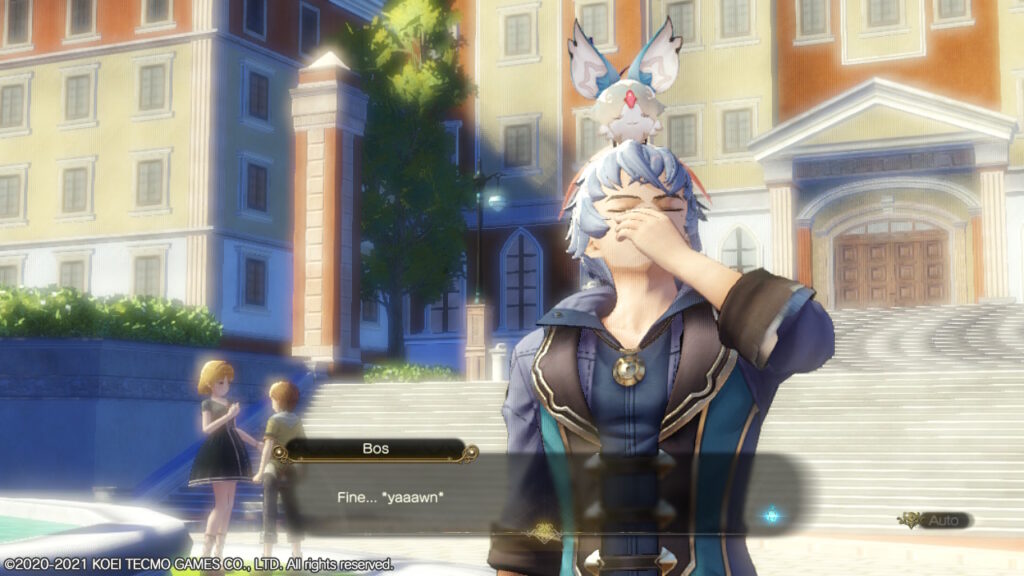
The controls in battles and exploring are fairly easy to use. The former reminds me of the old Star Ocean games, in the sense of the real time battles and the need of button input to attack or use items. As far as the free roam mode is concerned, it works like your typical fetch quester. Go to Area A, to find Alchemy ingredient B, go back to shop, mix Alchemy thing C. A pretty straightforward gameplay loop.
You’re tasked with not only exploring ruins with friends, but helping out townsfolk, citizens, aristocrats, and even bandits (don’t worry, they seem more goofy than evil). The errands vary from things like finding mushrooms for soups, scraps of paper for diaries; to hunting spikes and taverns for hides and feathers.
Gathering materials for alchemy is an ongoing task in all of the above. Which brings me to my only gripe so far. Holy shit is there a lot to do in this game! There are so many alchemy recipes to do, so many different game mechanics to master and learn, tons of menus to navigate through, and a skill tree to expand and explore.
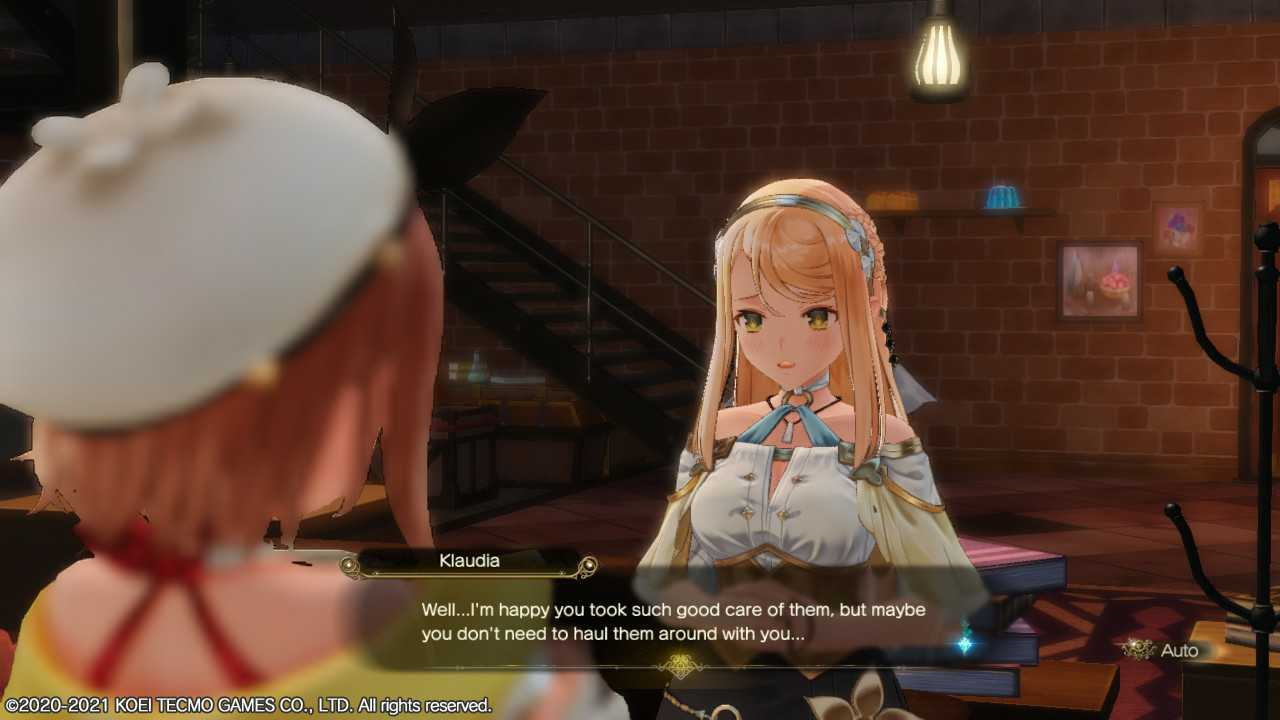
If you like Sims-style games where you drive to improve the quality of life, then this may be for you. It may be a bit overwhelming for a newbie, and I found myself remembering State of Decay 2 of all things (a game I happily put almost 1000 hours into). Resource management is an essential skill in Ryza 2 for sure.
It would be easy to assume the battle system would have been an afterthought, but this is far from true. Much like the Final Fantasy ATB system, players wait for their characters to move up the time-line, ready to unleash their attacks once they do. However, seeing how soon a monster may attack may mean healing or defending is a safer bet.
The battle system uses a mechanic called ‘core charges’ that are built up by landing hits in succession. Those hits charge up that meter, and it allows you to use magic via items you’ve equipped.
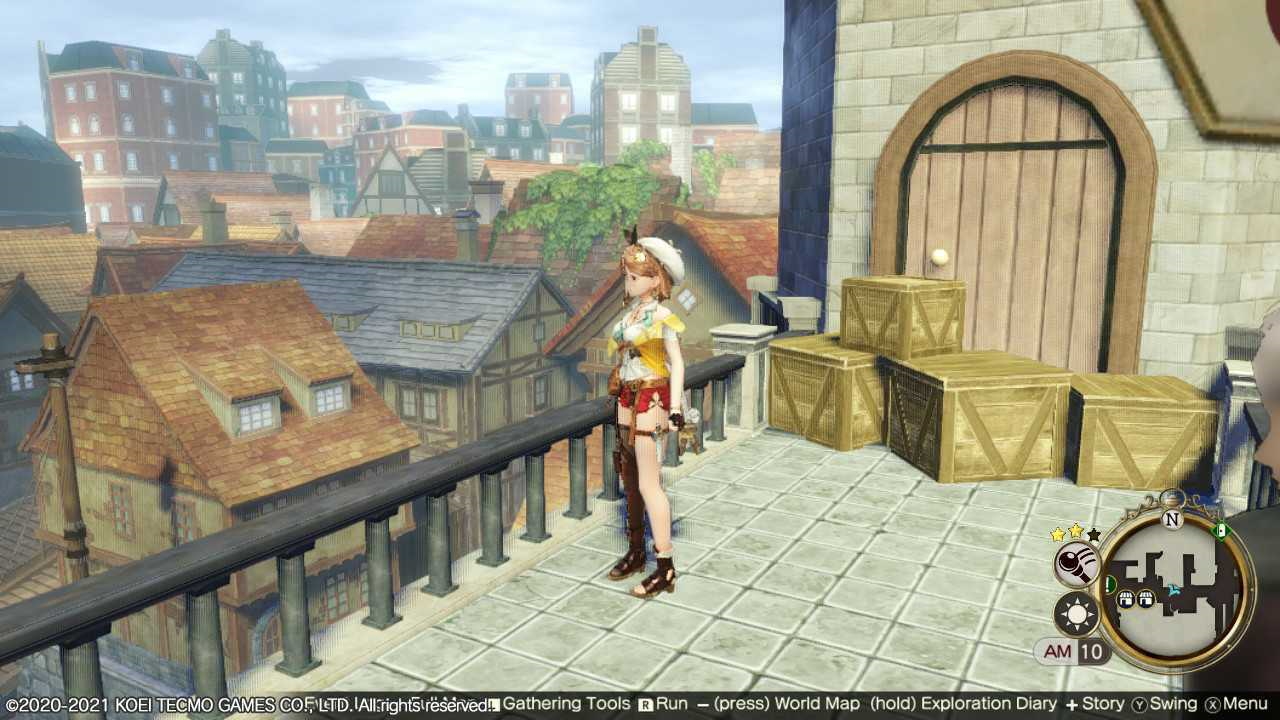
The core items have different elemental properties and stat boosts, and the customization of it all ties back into the alchemy aspect. I found myself slaving over Ryza’s cauldron almost as much as I was out gathering and fighting.
The allies AI has two modes to choose from; an aggressive mode where they use their skills more often, and a support mode where they support whatever character the players control.
There’s also a neat part where the AI will ask for you to deal physical or magic damage, thus allowing then to chain into powerful attacks and spells themselves. The battles are quite fun, and there doesn’t seem to be too much of a difficulty spike that cant be solved by grinding a few levels, in good ol’ jrpg style.
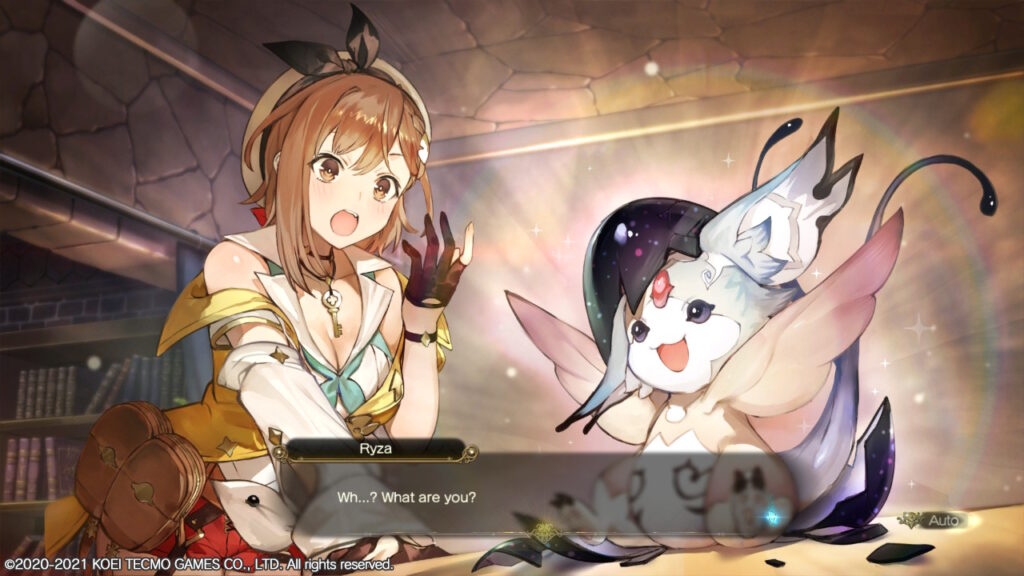
It’s not boring at all, and is quite rewarding if you time attacks and blocks correctly. You can freely switch between the 4 characters on the battlefield to chain together attacks for even more damage, or use items (which are in place of magic spells).
Items are also used for healing of course, both in and out of fights. The fights are optional, and enemies will actually run away from you once you have enough EXP. Not only is this amusing, but it helps drive away fruitless fights unless you want to do them.
Sometimes however, the fights are necessary to gather materials or to hunt monsters that are requested on the in game bulletin board in the cafe area of the starting city.
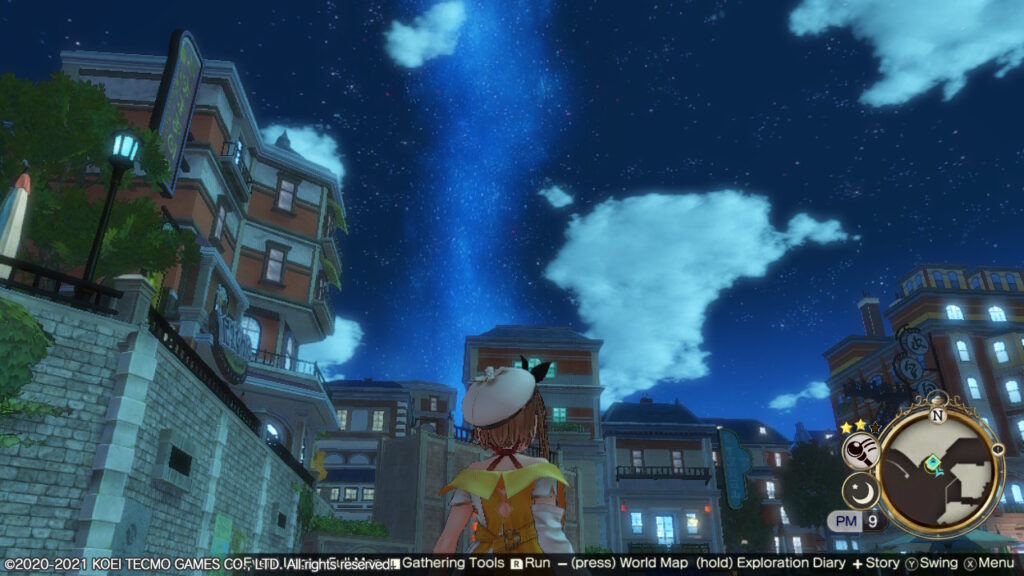
The alchemy system is where this game really shines. Learn to love gathering materials too, because they’re necessary for good alchemy recipe creation. Recipes yield skill points as well as boons to your characters with the end products.
Skill points are then used to expand the repertoire of gathering tools, advanced recipes, stat boosts, and more. Skill points are also rewarded upon completing exploration of the different ruins and dungeons encountered in your travels.
The fast travel map feature is a godsend too, if you’re like me and find yourself constantly with a full pack of goodies and the need to dump them, then go get more loot. Lather, rinse, repeat, do an alchemy. There’s even a neat feature that automatically makes your items at optimal levels (which affects its stats and value) if you choose to let the game do so.
The whole alchemy and skill point system is intuitive and customizable enough to where it’s not so boring to grind or gather materials for the reward waiting for you upon recipe completion. Even if it all gets too much, the game can handle some of it while you focus on gathering materials and whacking enemies.
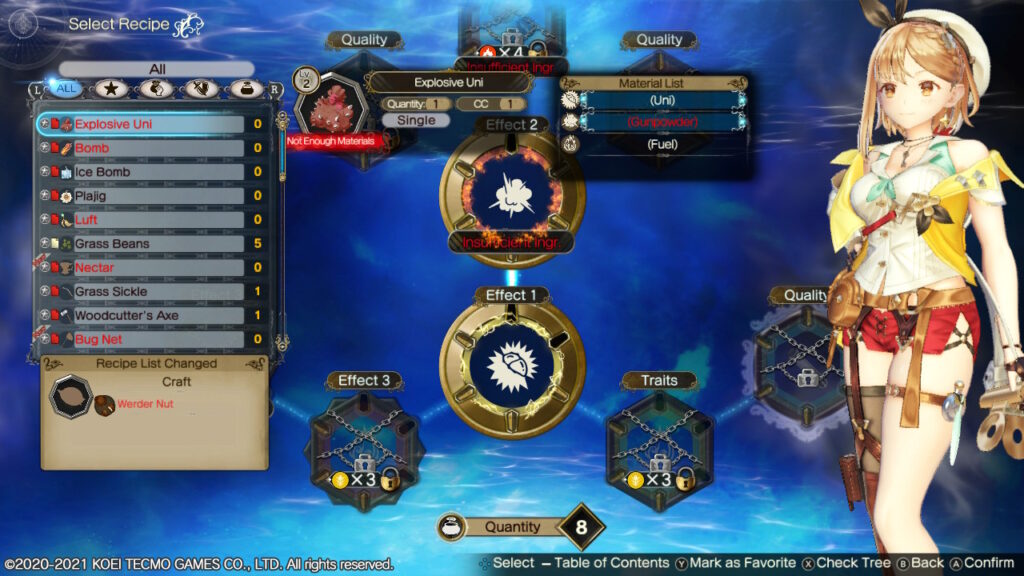
Even so, there are a few missteps. The minimap tends to be so cluttered, other markers and icons can completely cover the quest objective marker if you’re not alert and aware.
The Nintendo Switch also has a unique problem where text can be too small when played in hand-held mode. Thankfully there is a built-in zoom function on Nintendo Switch, but it still feels like something the developers should have considered.
While many are sure to be able to understand the games numerous features and intricacies, sometimes I still feel a bit overwhelmed at the sheer scope of things to do, game mechanics to learn, recipes to remember, places to explore, and more. Every time I turn around, the game is throwing something else new to learn and master on the fly. It definitely feels like there was some feature creep unfortunately.
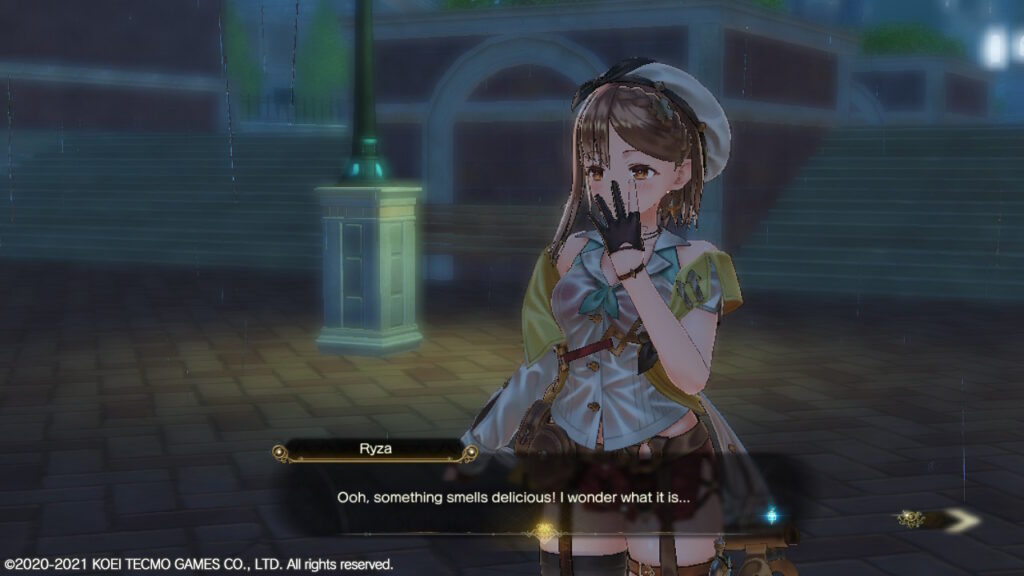
Next we have the music. The tunes are upbeat, catchy, light, and now customizable. The developers added the ability to make a playlist of songs from this game, and from Atelier Online. The music is dynamic, changing with the time of day or the weather to help set the scene.
While I’m not usually someone engrossed with a game’s music, I did catch myself humming along to several of the game’s tracks, and I’m sure you will too. The music has a lighthearted mix of easy listening complete with flutes, bongos, horns, tambourines, and even some light guitar in some areas- especially at night.
While in your home domicile where you do your alchemy and save your progress, you can tweak the sound and customize your pad and Ryza’s and other character’s outfits. All of these can be bought separately as DLC, and some are unlocked upon game completion. So far the game is only in Japanese with English subtitles, but it is obvious the performance by the seiyuus are high quality. The dubbing matches their mouth movements almost perfectly in cutscenes.
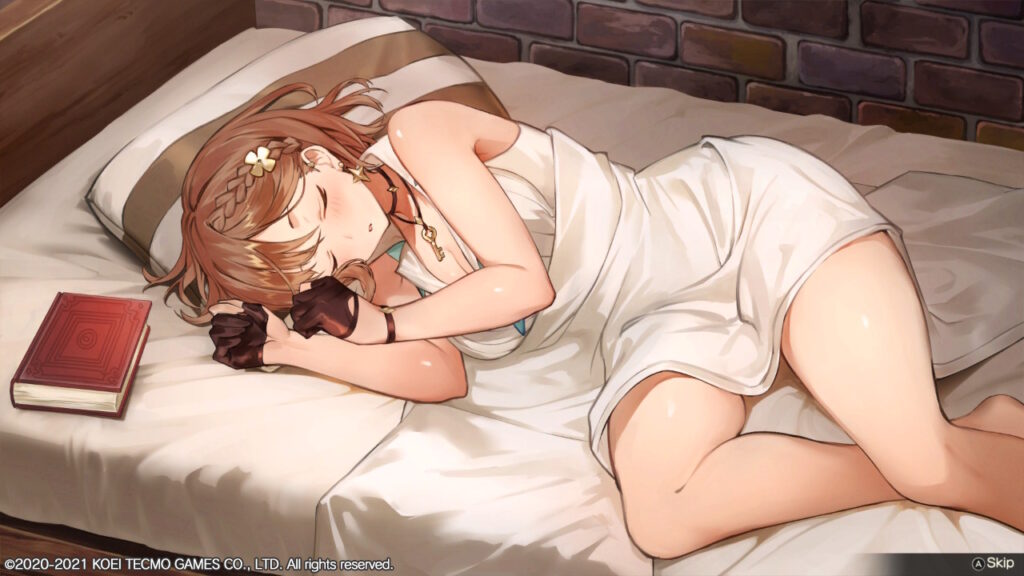
In closing, does Atelier Ryza 2: Lost Legends & the Secret Fairy scratch my obsession with fetching resources and managing them? Yes it does. The rpg elements are just icing on the cake.
It’s a solid game all around, albeit a little overwhelming at first. If you’re into fetch quest heavy games (Fallout, The Witcher, State of Decay) then this is well worth diving into; even if you’re not a filthy weaboo like me. I mean c’mon look at her sleeping. She’s so cute.